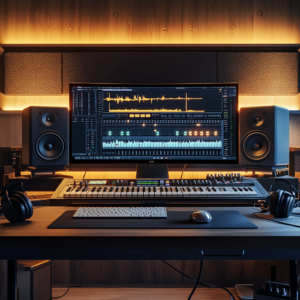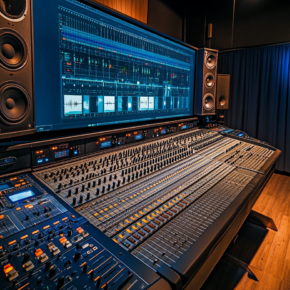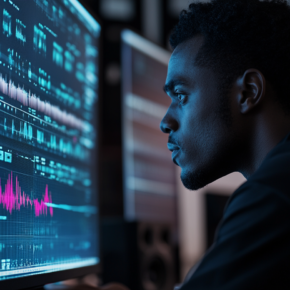If you want professional-quality music, understanding mixing vs. mastering is essential. These two processes are the backbone of music production. Mixing blends individual tracks into a cohesive song, while mastering enhances the final mix to ensure consistency across all playback devices. Let’s dive into what makes these steps different and why you need both.
What Is Mixing vs. Mastering?
Mixing: Blending Tracks
Mixing involves balancing, equalizing, and enhancing individual tracks like vocals and instruments. It’s where the creative and technical aspects of a song come together.
Mastering: Final Polishing
Mastering focuses on the entire track, adding the final polish to ensure it sounds consistent and professional across different platforms.
Key Components of Mixing vs. Mastering
Mixing:
- Level Balancing: Adjusting track volumes for clarity.
- Panning: Placing sounds in the stereo field for depth.
- Effects: Adding reverb, delay, or compression to enhance elements.
Mastering:
- Tonal Adjustment: Balancing frequencies for a cohesive sound.
- Volume Normalization: Ensuring the track meets loudness standards.
- Dynamic Range Control: Keeping loud and soft parts balanced.

Why Mixing vs. Mastering Matters
Mixing Shapes the Song
Without mixing, tracks lack clarity and balance. Mixing ensures each element complements the others.
Mastering Ensures Consistency
Mastering ensures the song sounds polished on all playback devices, from headphones to car speakers.
Mixing vs. Mastering: The Key Differences
Purpose
Mixing enhances individual elements, while mastering refines the overall track.
Timing
Mixing happens first, laying the foundation. Mastering comes after and provides the final polish.
Tools and Focus
Mixing uses tools like EQ and effects on individual tracks. Mastering applies these tools to the entire mix.
Transform your next hit?
Common Misconceptions About Mixing vs. Mastering
They Are the Same Thing
Many believe mixing and mastering are interchangeable, but they have unique roles. Mixing is detailed and creative, while mastering is broad and technical.
Mastering Fixes Bad Mixes
Mastering cannot repair a poorly mixed track. A good mix is essential for effective mastering.
DIY Tools Are Enough
While software can help, professional engineers bring expertise that ensures the best results.
FAQs About Mixing and Mastering
What is the biggest difference between mixing vs. mastering?
Mixing balances individual tracks, while mastering enhances the overall sound for distribution.
Can you master a song without mixing it first?
No. A well-mixed track is essential for mastering to be effective.
Why is mastering important?
Mastering ensures your track sounds consistent across all playback systems.
How long does mixing vs. mastering take?
Mixing can take several days, while mastering typically takes a few hours per track.
Do I need both mixing and mastering?
Yes, both are essential to achieving professional-quality sound.
Conclusion
Understanding mixing vs. mastering is critical for creating professional music. Mixing focuses on balancing and enhancing individual elements, while mastering ensures the entire track is polished and consistent. Together, these steps are the foundation of high-quality music production that resonates with listeners.





